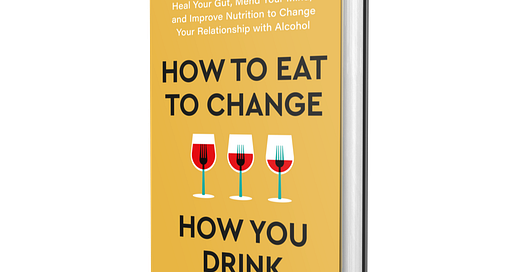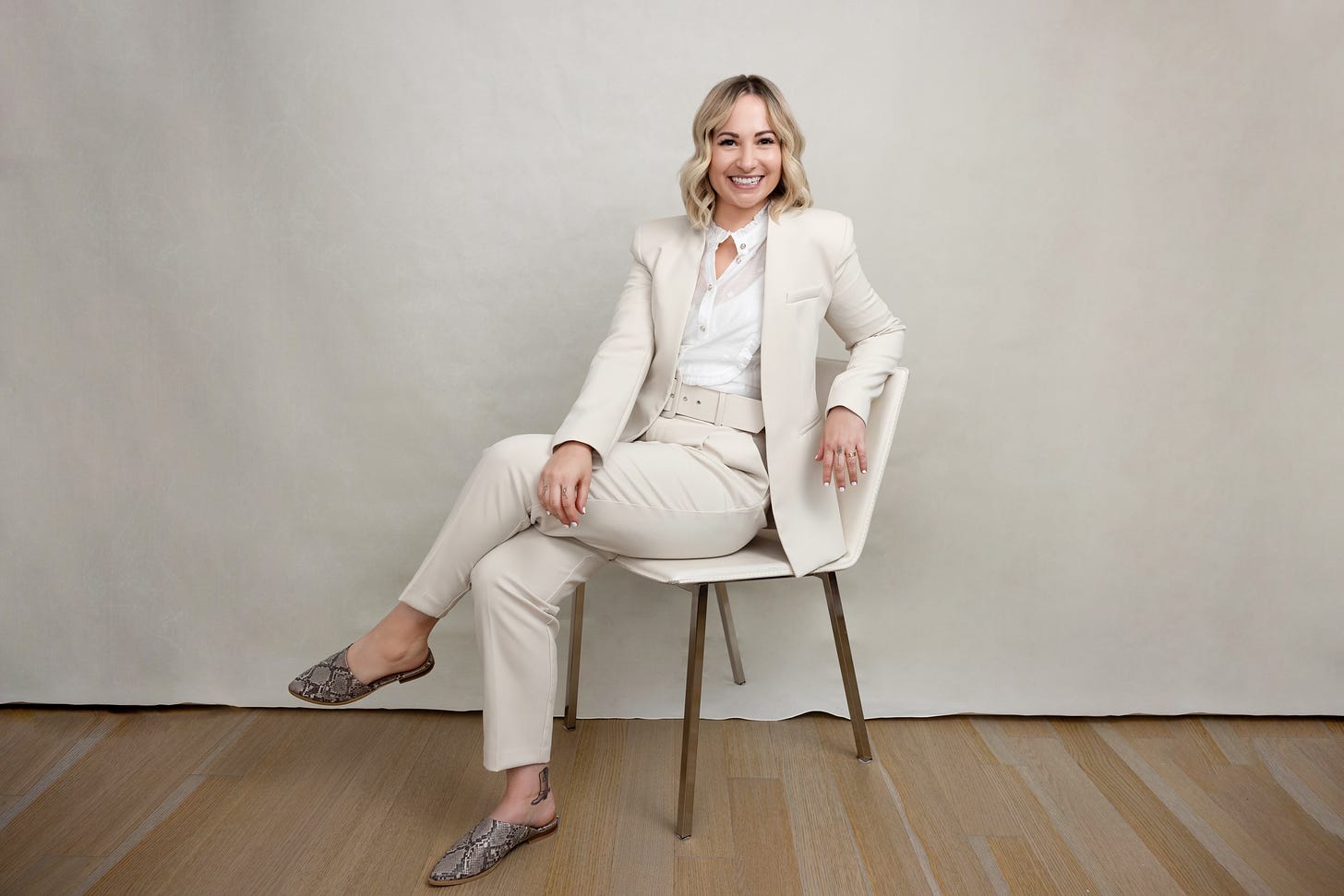How to Have a Healthier Relationship With Food After Quitting Alcohol
3 Nutrition tips from Dr. Brooke Scheller, author of ‘How to Eat to Change How You Drink’
Happy Hump Day! I’m Tawny, an advice columnist better known as “The Sober Sexpert” and author of Dry Humping: A Guide to Dating, Relating, and Hooking Up Without the Booze. I’m here to empower you to find your *intrinsic* courage without booze—regardless of your relationship status—one date at a time.
This week’s issue of Beyond Liquid Courage is a first: I’m asking the question! Yes, advice columnists need advice, too, y’all. While many issues of this newsletter are about dating and romantic relationships, this issue focuses on the #1 rule in my book: take care of yourself first!
My good friend and fellow debut author, Dr. Brooke Scheller, has a new book coming out on December 26th that’s all about alcohol and nutrition. Reading an advanced copy of How to Eat to Change How You Drink: Heal Your Gut, Mend Your Mind, and Improve Nutrition to Change Your Relationship with Alcohol helped me understand the role alcohol abuse played in my body image issues (and many other issues!) from a nutritional, scientific perspective.
If you’ve read my book, you know that I discuss my issues with body image and body dysmorphia. Hiding from my body insecurities was just one of the many reasons I binge drank regularly. The liquid courage of alcohol masked those insecurities, which helped me feel more confident in the bedroom and on dates. But, as we all know, that mask went away in the morning, leaving me with body image issues *plus* a horrendous hangover.
Learning the science of what alcohol did to my body helps me forgive myself, empathizing with the younger version of me who was always eager for a quick fix instead of doing The Work to address my shit. I also now have language (thanks, therapy and recovery!) for what I was struggling with: chronic anxiety, body dysmorphia, sexual PTSD, and C-PTSD. That poor girl was just living in survival mode, trying to stay alive while desperately grasping at unhealthy coping mechanisms.
I’m eight years in recovery, seven years in therapy, and I still struggle with body dysmorphia every damn day. Luckily, Dr. Brooke’s new book and thoughtful advice below shine a new light on the intersection of food and sobriety.
Dear Brooke,
As you know, I’m eight years in recovery, happily married, and the proud mama of two fur babies. My question is more about my relationship with myself and, more specifically, with food. My attempts at nutritional health in the past were largely informed by diet culture. I did everything I could to make my body smaller through obsessive exercise, calorie counting, and food restriction. Now, in recovery, I’ve found a healthy relationship with exercise, and I eat a balanced diet, but I would like to know more about my body and overall health from a nutritional perspective. The thought of working with a nutritionist, talking about food, and documenting everything I eat feels triggering to my past obsessive behaviors. How can I start my nutrition journey in a, well, healthy way?
Help!,
Tawny
Hi Tawny,
First, I want you to know you’re not alone!
We were raised in a culture that focused on tiny models in magazines, ads for products like Slimfast and Hydroxycut, and watching shows like America’s Next Top Model ream out the women who had an ounce of fat on their bodies. Needless to say, it’s not surprising that many women have issues with body image. Unfortunately, our society has made us this way (and kept us this way) through marketing, pop culture, and even through influencing behaviors like alcohol consumption.
Because I work almost exclusively with people who have a history of alcohol use or addictive behaviors, you won’t be surprised that this question comes up often. Those of us who have a history of unhealthy behaviors with substances often have unhealthy behaviors around other things we “consume.” Alcohol is a beverage, after all, and it is metabolized by the body just like food. That’s why in my book, How to Eat to Change How You Drink, I help readers understand more about how to look at alcohol through the lens of nutrition rather than a completely separate entity.
Become a paid subscriber to get Dr. Brooke’s breakdown of why calorie counting may not be the best way forward, how to focus on WHAT you eat instead of HOW MUCH, and her top 3 tips for a nutritious lifestyle (sans alcohol).
Keep reading with a 7-day free trial
Subscribe to Beyond Liquid Courage to keep reading this post and get 7 days of free access to the full post archives.






